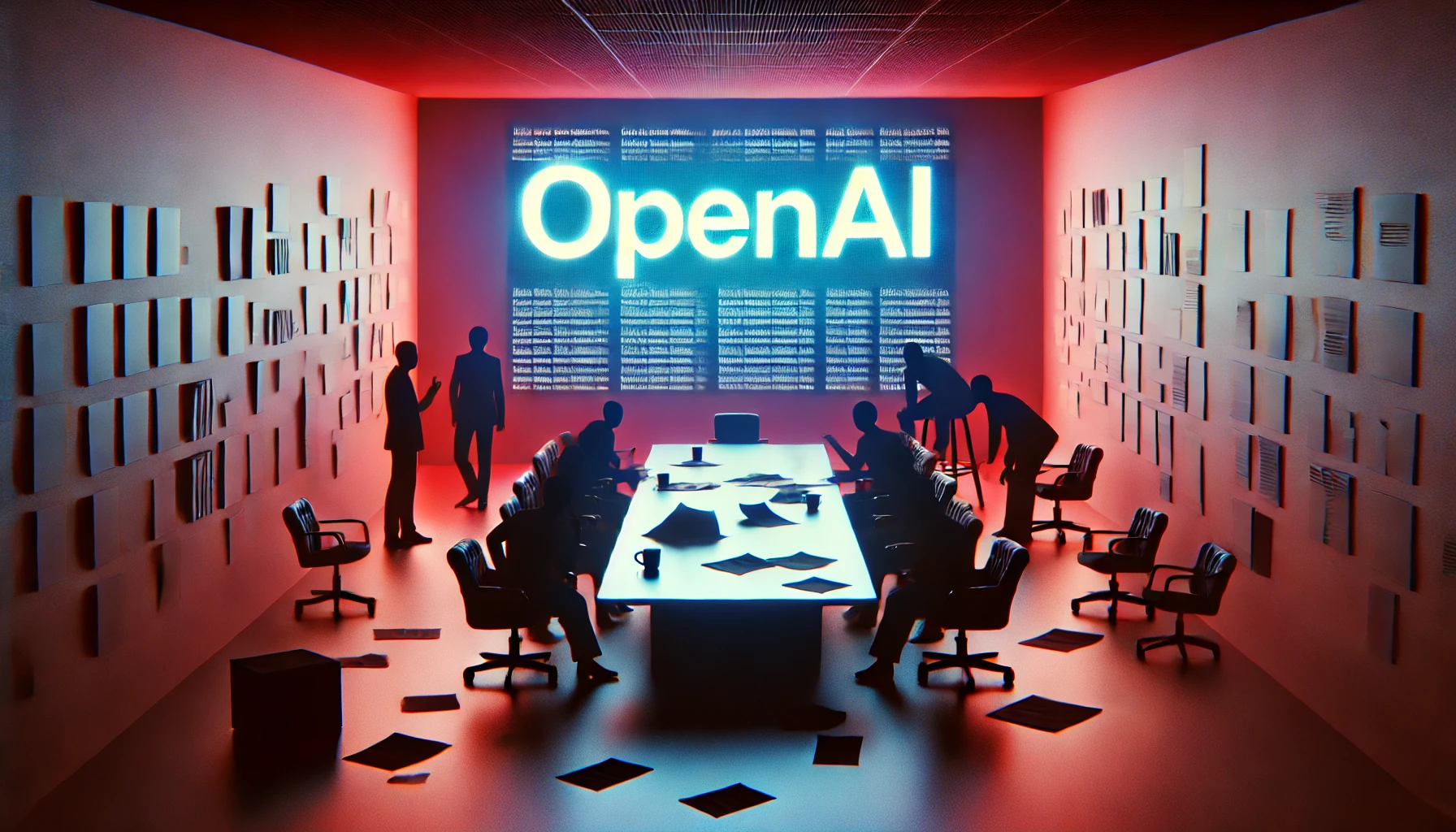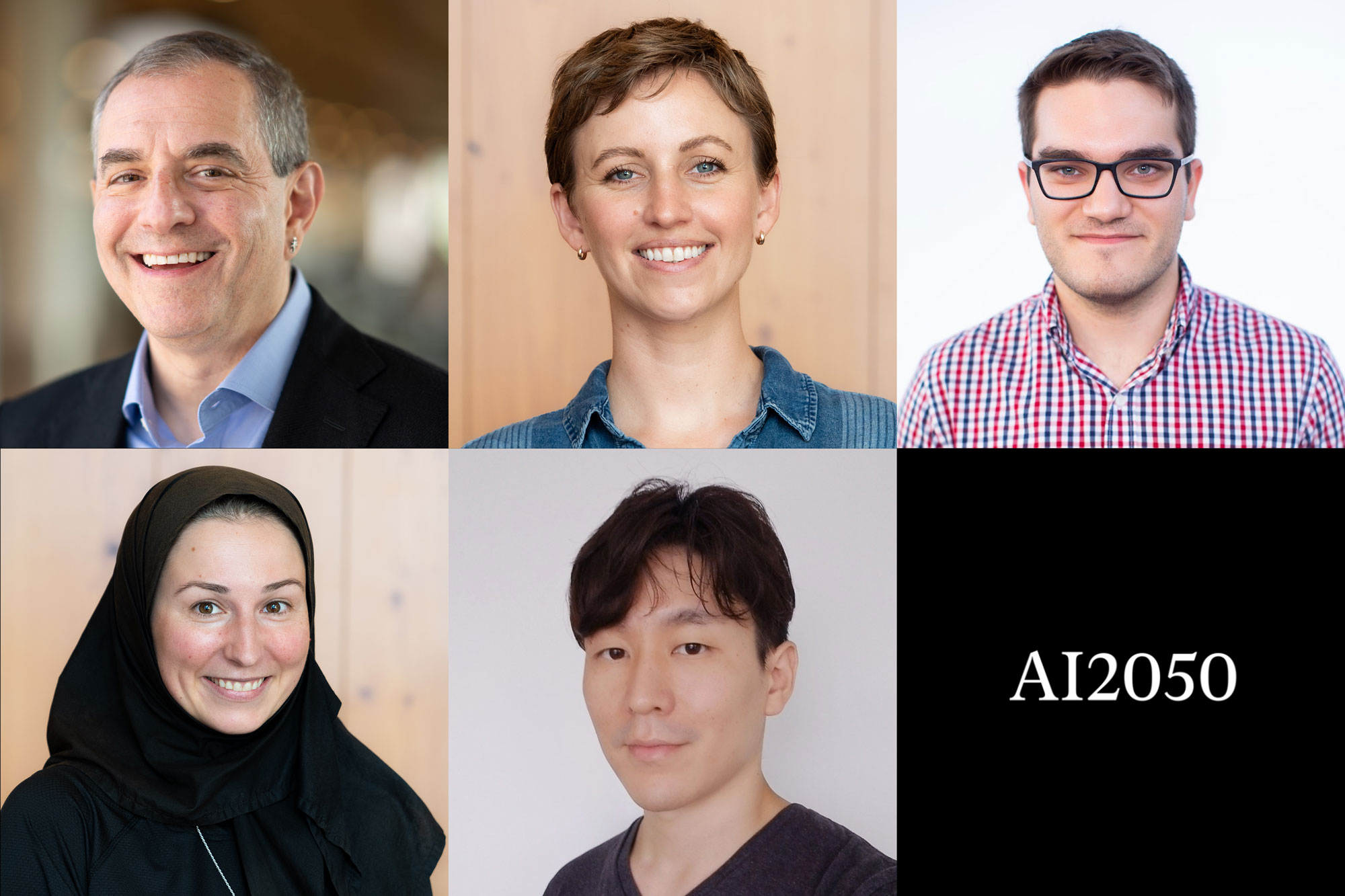OpenAI’s leadership is rocked by another set of high-profile exits
More high-profile exits at OpenAI – this time John Schulman, co-founder and Head of Research, Greg Brockman, President and Co-founder, and Peter Deng, Product Leader. This latest shake-up comes just months after a major upheaval in OpenAI’s AI safety team, deepening the company’s recent pattern of instability. Perhaps most shocking is Schulman’s intention to join OpenAI’s competitor, Anthropic, which is primarily known for the Claude series of language models. Anthropic and OpenAI models have tussled at the top of machine learning leaderboards, with recent releases directly competing with one another (e.g. GPT-4o with Claude 3.5 Sonnet, GPT-4o mini and Claude The post OpenAI’s leadership is rocked by another set of high-profile exits appeared first on DailyAI.

More high-profile exits at OpenAI – this time John Schulman, co-founder and Head of Research, Greg Brockman, President and Co-founder, and Peter Deng, Product Leader.
This latest shake-up comes just months after a major upheaval in OpenAI’s AI safety team, deepening the company’s recent pattern of instability.
Perhaps most shocking is Schulman’s intention to join OpenAI’s competitor, Anthropic, which is primarily known for the Claude series of language models.
Anthropic and OpenAI models have tussled at the top of machine learning leaderboards, with recent releases directly competing with one another (e.g. GPT-4o with Claude 3.5 Sonnet, GPT-4o mini and Claude Haiku, etc).
This is no isolated event. OpenAI has brought plenty of drama to the AI sector in recent months, with numerous high-profile exits and the leadership debacle at the end of 2023 that saw CEO Sam Altman fired and re-hired within days.
Is it all a sign of a deeper systemic issue at the company, a coincidence, or a storm in a teacup?
Whatever the answer is, it doesn’t exactly paint a picture of stability at a company pioneering the future of AI research.
John Schulman: Co-founder and Head of Research
Perhaps the most surprising departure is that of John Schulman, one of OpenAI’s co-founders and a highly respected figure in AI research.
Schulman announced his decision to leave OpenAI and join rival AI company Anthropic, citing a desire to focus more deeply on AI alignment – the critical challenge of ensuring AI systems behave in ways that are safe and beneficial to humanity.
This follows similar statements made by OpenAI executives Jan Leike and Ilya Sutskever, as well as a string of other employees, that left the company with doubts about its ability to handle AI safety.
Schulman explained on X:
“I shared the following note with my OpenAI colleagues today: I’ve made the difficult decision to leave OpenAI. This choice stems from my desire to deepen my focus on AI alignment, and to start a new chapter of my career where I can return to hands-on technical work. I’ve decided to pursue this goal at Anthropic, where I believe I can gain new perspectives and do research alongside people deeply engaged with the topics I’m most interested in.”
I shared the following note with my OpenAI colleagues today:
I’ve made the difficult decision to leave OpenAI. This choice stems from my desire to deepen my focus on AI alignment, and to start a new chapter of my career where I can return to hands-on technical work. I’ve decided…
— John Schulman (@johnschulman2) August 6, 2024
Schulman’s departure is particularly significant given his instrumental role in developing some of OpenAI’s most influential technologies, including advancements in reinforcement learning.
Altman saw off Schulman positively, posting, “Thank you for everything you’ve done for OpenAI! You are a brilliant researcher, a deep thinker about product and society, and mostly, you are a great friend to all of us. We will miss you tremendously and make you proud of this place.”
Thank you for everything you’ve done for OpenAI! You are a brilliant researcher, a deep thinker about product and society, and mostly, you are a great friend to all of us. We will miss you tremendously and make you proud of this place.
(I first met John in a cafe in Berkeley in…
— Sam Altman (@sama) August 6, 2024
Greg Brockman: President and Co-founder (extended leave)
Greg Brockman, OpenAI’s president and another co-founder, is taking an extended leave of absence until the end of the year.
Brockman has been a key public face of the company and played an integral role in its growth and strategic direction.
“I’m taking a sabbatical through end of year. First time to relax since co-founding OpenAI 9 years ago. The mission is far from complete; we still have a safe AGI to build,” posted Brockman on X.
I’m taking a sabbatical through end of year. First time to relax since co-founding OpenAI 9 years ago. The mission is far from complete; we still have a safe AGI to build.
— Greg Brockman (@gdb) August 6, 2024
While Brockman framed his leave as a break, the timing is obviously peculiar. Is he meditating on his place at OpenAI?
You’d surely be forgiven for believing that to be the case, given that he’s one of not just two but three important people leaving the company.
If he was strongly allied with OpenAI and Altman, you’d expect him to have deferred breaking the news, though perhaps it wouldn’t have made any difference.
Peter Deng: Product Leader
The third departure is Peter Deng, who joined OpenAI in 2023 after holding senior positions at companies like Meta, Uber, and Airtable.
That’s a short stint, and Deng’s post was critical at a time when the company was rapidly commercializing its AI technologies and facing hot competition.
A pattern of exits
These departures aren’t happening in a vacuum. In May 2024, OpenAI’s “superalignment” team, charged with aligning AI safety with moral and societal values, seemingly imploded:
- Ilya Sutskever – OpenAI’s co-founder and chief scientist
- Jan Leike – Head of alignment and the superalignment lead
Leike’s departure was especially contentious. He publicly stated, “Over the past years, safety culture and processes have taken a backseat to shiny products.”
Sutskever later founded his own company, Safe Superintelligence Inc., which could pick up any talent leaving OpenAI.
The May exodus wasn’t limited to these two individuals. Over the past months, at least five other key members of the super alignment team, including Daniel Kokotajlo, Leopold Aschenbrenner, and Pavel Izmailov, either quit or were allegedly forced out.
And let’s not forget last year’s leadership debacle, which saw Altman survive a coup from the board. He was ejected from the company only to rejoin days later after an uproar from his team.
Employees backed Altman and the company then, posting the statement “OpenAI is nothing without its people” – a phrase that is coming back to bite them now.
Mounting challenges for OpenAI
Adding fuel to the fire, these high-profile departures come amid a sequence of non-leadership related challenges for OpenAI.
First, GPT-5 is nowhere to be seen. GPT-4o is bound to slip back in the pack in the meantime, with OpenAI telling TechCrunch, “We’re not planning to announce our next model at DevDay,” and “We’ll be focused more on educating developers about what’s available and showcasing dev community stories.”
OpenAI posted in late May that it’s busy training its next frontier model (presumably GPT-5), the success of which is now absolutely pivotal to the company’s status in the AI sector.
GPT-4o’s much-publicized voice communication features are rolling out, at least, but this hasn’t been the seismic release touted in OpenAI‘s demo.
Moreover, not long ago, The Information revealed that OpenAI‘s costs are rocketing. This year, the company has allegedly spent some $7 billion on model training and $1.5 billion on staff, and it could face losses of $5 billion this year.
Generative AI is vastly expensive, and there are doubts that OpenAI can truly maintain the momentum required to force the industry’s pace as it once did.
On top of all of that, Elon Musk filed a new lawsuit against OpenAI and Altman, in a Californian federal court under the Racketeer Influenced and Corrupt Organizations Act. It doubles down on the original lawsuit, with 15 rather than five charges.
Musk argues that OpenAI’s pursuit of profit breaches the contract he and co-founders Altman and Brockman created when founding the company.
There has always been trouble in the tech paradise of Silicon Valley, but OpenAI is a curious case right now.
Brockman’s moves come the end of the year will be very revealing as to how these latest exits affect the company’s future.
Whether any of this impacts OpenAI’s next frontier model or other products is anyone’s guess.
Altman is sure to do everything he can to keep pushing toward that next milestone.
The post OpenAI’s leadership is rocked by another set of high-profile exits appeared first on DailyAI.























